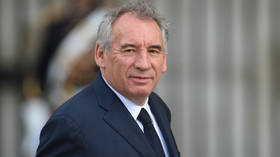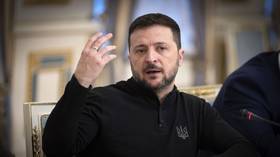Can Europe find consensus on Russia?
Relations with Russia are to be the focus of an extraordinary EU summit in Brussels, called by French President Nicholas Sarkozy, whose country currently holds the bloc's rotating presidency.
The union's member states are keen to send a clear and united message to Russia over the situation in Georgia, but consensus is not something that is easily reached in Europe.
In recent years the bloc has often been divided over policy towards Russia. Many ex-Communist members of the EU, such as Poland and the Baltic states as well as Sweden and Britain have been pushing for a much tougher line than the countries of the so called Old Europe, which are concerned about damaging ties with Russia.
“With regards to the European Union, it has the will to build with Russia an intricate and positive relationship. But today it is up to Russia to make a fundamental choice,” said French President Nicolas Sarkozy .
Monday's meeting will be looking at two main questions: the destiny of the EU partnership agreement with Russia to replace the 1997 accord and the possibility of introducing sanctions.
“The talks on the new agreement started at the beginning of July. The next round is planned for September 16. I have not received any indication whatsoever that these plans are being revised to the contrary – there was a public statement by the spokesman of the European commission a few days ago confirming those plans,” said Vladimir Chizhov, Russian Ambassador to the EU.
As for the possible sanctions, Vladimir Chizhov says that “the only body empowered to impose sanctions is the UN Security Council”.
“Anything else can be called restrictive measures at best but this is a tool that has seldom worked in international relations and in the case of Russia it's not only shortsighted but unrealistic. We live in a world that is so interconnected and interdependent that for a country like Russia to be isolated is out of the question per se,” Vladimir Chizhov added.
Despite lacking legal authority to introduce sanctions the French Foreign Minister Bernard Kouchner has confirmed the EU is looking at all options.
“We are trying to draw up a strong text, signifying our unwillingness to accept (the situation). Now, sanctions – they are being considered. As well as many other means,” said Kouchner.
What the EU member states do agree on is sending economic and humanitarian aid to Georgia and demanding that Russia abides by the terms of the six-point peace plan, which both countries have signed. But taking any kind of punitive measures is less likely to find unanimous support. Relying on Russia for much of their energy needs, European policymakers know their options are limited.
“I wouldn't want to see any worsening of relations should the EU decide otherwise then we will have to draw conclusions,” said Chizhov.
With Russia being a vital partner any harsh steps will certainly affect Europe's own interests, so the meeting, which some expect to define the future of relations between Russia and the EU, is likely to see more tough words rather than tough action.
In an interview with French radio station Europe 1 on Monday, the French Prime Minister, Francois Fillon, said Nicolas Sarkozy is prepared to return to Tbilisi and Moscow to personally advance the negotiations.












